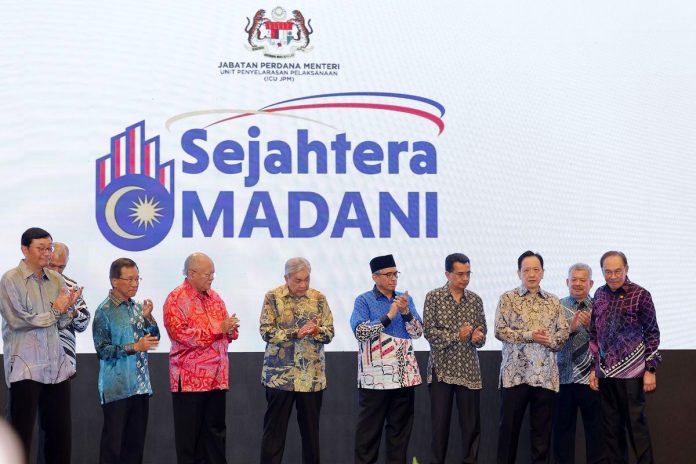PUTRAJAYA: The Sejahtera MADANI initiative marks a new chapter in Malaysia’s social justice landscape as it combines policy strength, data precision, and sincerity of implementers in a holistic effort to eradicate poverty in a dignified and effective manner, based on local values and culture, said academics.
According to Prof Dr Zainal Abidin Sanusi, a lecturer at the Department of Political Science and MADANI Studies at the International Islamic University Malaysia (IIUM), the initiative reflects more than just financial assistance; it represents a transformational approach that addresses structural, emotional, and human dimensions of poverty.
“Sejahtera MADANI is not merely another welfare policy. It’s a systemic shift in how we understand and address poverty, not merely in statistics, but also in realities that require structural reform and strategic unification,” he told Bernama.
Zainal, who also heads IIUM’s Sejahtera Centre for Sustainability and Humanity, said the strength of Sejahtera MADANI lies in its integration of existing aid programmes such as the Rakyat Sejahtera Housing Programme (PPRS), Amanah Ikhtiar, and Tekun, along with national databases like eKasih and MyKasih, which lacked coordination.
“With Sejahtera MADANI, we now see clearer structural alignment, especially through a household-based approach focusing on Heads of Households (KIR) and Household Members (AIR) and guided by four key areas of focus, namely income, education, housing, and welfare,” he explained.
Zainal said this strategy views poverty as a structural issue, not merely a lack of income, which aligns with the principles of inclusivity and social justice that form the backbone of the Malaysia MADANI framework.
He also welcomed the emphasis on local-level implementation, noting that many past programmes failed not due to poor policy design, but because of weak micro-governance and outdated data.
“Sejahtera MADANI empowers grassroots implementers as development enablers, not just aid distributors. It also brings together initiatives such as Sekolah Angkat MADANI, Kampung Angkat MADANI, Komuniti@UniMADANI, and Bakti MADANI into a mutually reinforcing ecosystem,” he said.
A key feature of the initiative is a more transparent and responsive impact monitoring system, designed to adapt to changing socio-economic conditions, demanding not just policy restructuring, but a shift in execution culture.
Zainal also emphasised the need for remapping poverty hotspots, using micro-level community assessments rather than relying solely on macro data.
At the same time, Zainal lauded the government’s move to upgrade the eKasih database, calling it a vital step to ensure fairer aid distribution because poverty, he said, is deeply interconnected with educational access, mental health, aid dependency, and the absence of community voices in development processes.
“Sejahtera MADANI presents a forward-thinking, holistic strategy, including the development of self-worth and financial literacy among poor communities,” he remarked.
As a direct contributor to the Sekolah Angkat and Kampung Angkat programmes, Zainal urged for all MADANI-branded initiatives to be strategically consolidated under the Sejahtera MADANI umbrella, to avoid duplication and fragmented implementation.
“We need a comprehensive execution plan, backed by a robust ecosystem of data, implementers, and shared monitoring,” he said.
The professor also stressed that the success of Sejahtera MADANI hinges on consistent political commitment, efficient implementation, and a culture of integrity and empowerment at every level.
Launched by Prime Minister Datuk Seri Anwar Ibrahim on July 24, Sejahtera MADANI has already raised over RM120 million, underscoring the government’s commitment to eliminating poverty through focused and integrated national efforts.
The programme is coordinated by the Implementation Coordination Unit under the Prime Minister’s Department (ICU JPM), and targets registered poor and hardcore poor households within the eKasih database. – Bernama








